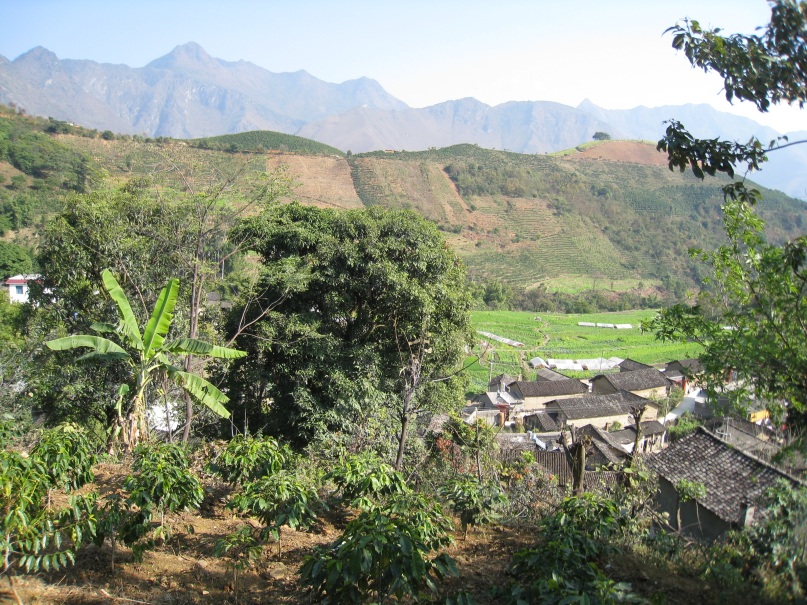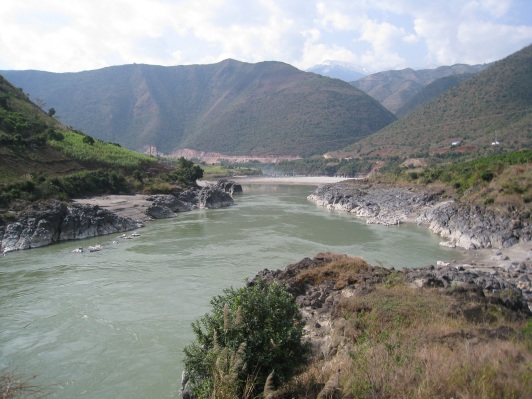Posted 01/28/14
Compromising sustainable use of natural resources in order to conserve biodiversity and maintain ecosystem services is a challenge in developing countries. Understanding local people's already-existing attitude and perspectives of ecosystem service benefits and biodiversity conservation values of protected areas can be useful for implementing effective conservation strategies as well as sustaining livelihoods of local people most affected by protected areas.
Teri and her colleague, Jianmei, conducted a study of local people’s attitudes toward Gaoligongshan Nature Reserve (GNR) of Southwest China to understand the the role of ecosystem services in people’s relationship with the nature reserve. This area of Yunnan suffers from droughts, and suffered a particularly severe one the year before the research was conducted. They found that knowledge about the nature reserve, ethnicity, and agricultural experience strongly influence local people perceptions of ecosystem service benefits of GNR.

The more knowledge that an individual has about GNRthe more likely they are to perceive ecosystem service benefits, such as more water and clear air. Some ethnic groups were more likely to perceive ecosystem service benefits. People who grow sugarcane, a crop that dependent on water, were more likely to perceive ecosystem service benefits, and people who grew corn, which is not as reliant on water, were less likely. Solutions for conservation and global environmental change will be more effective if theyintegrate local people perspectives on how they value ecosystem benefits from natural resources. Without understanding the sustainable livelihoods of locals can lead to undermine relationships of local people and environment. Moreover, top-down authorities such as governments, NGOs, and inter-government organizations could potentially destroy sustainable relationships between local people and their natural resources by implementing economic incentive programs such as REDD+ without understanding the attitude and perceptions of local people whose livelihoods closely tie to protected areas and natural resources.

For effective biodiversity conservation strategies of protected areas, top-down and bottom-up organizations need to find common ground in understanding causes and consequences of interactions between local people and protected areas.”
Story by Naparat Suttidate
